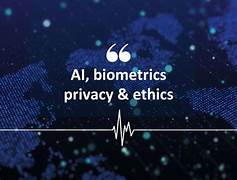Privacy and Biometric Data: Ethics and Consent in Digital Identification
Introduction
In the digital age, biometric data has become a crucial component of identity verification, security, and authentication. From facial recognition and fingerprint scans to voice and iris recognition, biometric systems are increasingly used by governments, corporations, and individuals. While these technologies offer significant advantages in security and convenience, they also raise profound ethical concerns regarding privacy, consent, and data security. This article explores the ethical considerations and consent challenges associated with biometric data in digital identification.
The Rise of Biometric Data in Digital Identification
Biometric identification is widely used across various industries, from border control and banking to mobile devices and healthcare. Some common applications include:
- Government and Law Enforcement: Governments use biometric systems for passports, national identification cards, and criminal investigations.
- Corporate and Workplace Security: Many organizations implement fingerprint or facial recognition for access control and employee verification.
- Consumer Technology: Smartphones and personal devices use biometric authentication for user access and payment security.
- Healthcare and Financial Services: Hospitals use biometric data for patient identification, while banks deploy it for secure transactions.
Despite these benefits, the collection and storage of biometric data raise significant privacy and ethical issues that must be addressed.
Ethical Concerns Surrounding Biometric Data
1. Privacy and Data Security Risks
Unlike passwords or PINs, biometric data is inherently personal and cannot be changed if compromised. The risk of hacking and data breaches increases when biometric information is stored in centralized databases. High-profile cases, such as the 2015 U.S. Office of Personnel Management (OPM) breach, highlight the dangers of poor biometric data security.
2. Informed Consent and User Autonomy
Biometric data collection often occurs without explicit user consent. Many people are unaware of how their data is collected, stored, and shared. Informed consent should involve:
- Clear and transparent communication about data usage.
- The option to opt-out without negative consequences.
- Understanding potential risks before agreeing to biometric data collection.
3. Potential for Misuse and Mass Surveillance
Biometric technologies can be misused for mass surveillance, racial profiling, and unauthorized tracking. Governments and private companies may use facial recognition to monitor individuals without their knowledge, raising concerns about civil liberties and human rights.
4. Bias and Discrimination in Biometric Systems
Many biometric systems have been criticized for racial and gender biases. Studies show that facial recognition algorithms often have higher error rates for people of color, leading to wrongful identifications and discrimination. Ethical AI practices must be incorporated to ensure fairness and accuracy.
5. Ethical Use in the Workplace
Employers using biometric data for attendance tracking and security must balance security needs with employee rights. Workplace policies should respect personal privacy and limit data collection to essential purposes.
Consent and Regulatory Frameworks
Given these ethical concerns, regulatory bodies worldwide have introduced laws to govern biometric data collection and usage:
- General Data Protection Regulation (GDPR) – Europe: Requires informed consent before collecting biometric data and mandates strict security measures.
- California Consumer Privacy Act (CCPA) – USA: Grants users control over personal data and requires disclosure of data collection practices.
- Biometric Information Privacy Act (BIPA) – Illinois, USA: One of the strictest laws, requiring written consent before biometric data collection.
Despite these regulations, enforcement and compliance vary, leaving many users vulnerable to unethical biometric data practices.
Best Practices for Ethical Biometric Data Management
To address ethical concerns and enhance privacy protection, organizations and policymakers should adopt best practices:
- Transparency and Accountability: Clearly inform users about data collection, storage, and usage policies.
- Minimization of Data Collection: Only collect biometric data when absolutely necessary and avoid excessive retention.
- Strong Security Measures: Implement encryption, decentralized storage, and multi-factor authentication to prevent breaches.
- User Control and Consent: Allow users to access, modify, or delete their biometric data when desired.
- Bias Mitigation in AI: Continuously audit and improve biometric algorithms to prevent discrimination.
- Ethical Oversight Committees: Establish regulatory bodies to monitor and evaluate biometric data use in public and private sectors.
Conclusion
Biometric data offers immense potential for enhancing security and efficiency, but it must be handled with care to protect individual privacy and rights. Ethical considerations, transparent consent practices, and robust regulations are essential to balancing innovation with privacy concerns. By implementing responsible biometric data practices, society can harness the benefits of digital identification while safeguarding personal freedoms.


